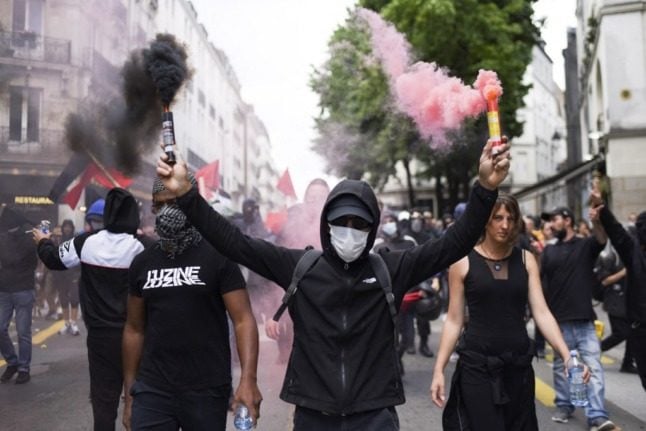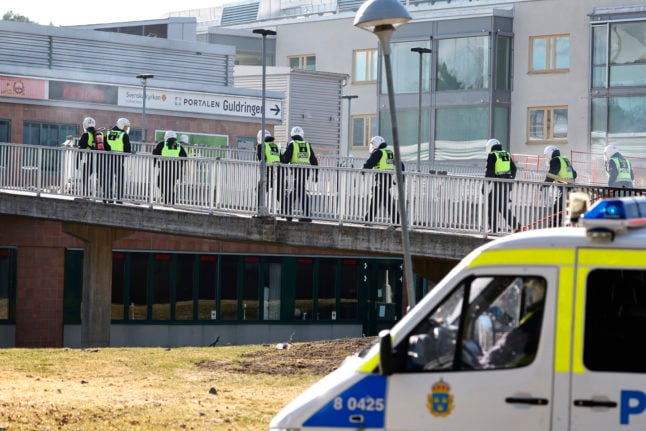At least four marches are scheduled to take place in Paris. The first will gather around the Porte Dorée in the 12th arrondissement from 11.30am to set off at 1pm towards the Place de Clichy.
A second march will leave the Place de la Bourse around 1.30pm and head to the Palais Royal, while a protest is scheduled at 2pm at Gare de Noisy-le-Grand.
Finally, one organised by hard-right politician Florian Philippot, is scheduled to start at 2.30pm at Place de Catalogne in the Montparnasse and head to Port Royal.
But it is in the south of the country that the biggest mobilisation is expected. Some 15,000 people are expected to join a single protest in Toulon, while 10,000 are hoped-for by organisers in Montpellier.
Nice, Marseille and Perpignan are all expecting large crowds, as protesters combine their opposition to the health pass with the return of mask mandates because of local rises in the number of Covid-19 cases.
With parents concerned over health plans for the big return to school in September, protests are set to continue until the end of France’s long summer holiday period.
READ ALSO Back-to-school Covid-19 health rules in France from September 2021
Saturday’s protests include marches in:
- Aix-en-Provence – 10am Place de Général de Gaulle
- Angoulême -2pm Place New York
- Avignon – 2pm Place de l’Horloge
- Bayonne – 2pm la mairie
- Belfort – 4pm préfecture
- Béziers – 10.30am Place du 14 juillet
- Bordeaux – 1.30pm Place de la Bourse
- Calais – 2pm Théâtre de Calais
- Carcassonne – 2.30pm Square Gambetta
- Dax – 10am Parc de la Mairie
- Dijon – 2pm Place de la République
- Foix – 10am Hall aux Grains
- La Rochelle – 1pm Parvis de l’Aquarium
- Lyon – 11am La Confluence/Esplanade François Mitterrand
- Lyon – 2pm Gare des Brotteaux: Manifestation à destination de Jean Macé
- Marseille – 2pm Vieux-Port
- Montpellier – 2pm Place de la Comédie
- Nice – 2pm Garibaldi
- Nîmes – 4pm Jardins de La Fontaine
- Perpignan – 2pm Place Catalogne
- Rouen – 2pm Place de l’Hôtel de Ville
- Strasbourg – 2pm Place Kléber
- Toulouse – 2pm Métro Jean-Jaurès
- Toulon – 1pm Place de la Liberté
- Vienne – 4pm – Jardin des Cybeles
According to official figures, the number of protesters has more than doubled in four weeks, from 114,000 on Saturday, July 17th – the first day of protests – to 237,000 last Saturday, August 7th.
On August 12th, the Health Ministry reported that more than 3.4 million people had got their first dose of vaccine since the beginning of the month and more than half the 6 million injections that had gone into arms since August 1st.
That’s an average of more than 280,000 first injections every day.
In total, nearly 46 million people in France have had at least one dose of vaccine, and nearly 38.5 million are now fully vaccinated.
#Vaccination #COVID19 | Au 12 août :
✔ 45 857 880 personnes ont reçu une 1ère injection
✔ 38 474 940 personnes ont un schéma vaccinal complet— Ministère des Solidarités et de la Santé (@Sante_Gouv) August 12, 2021



 Please whitelist us to continue reading.
Please whitelist us to continue reading.
Member comments